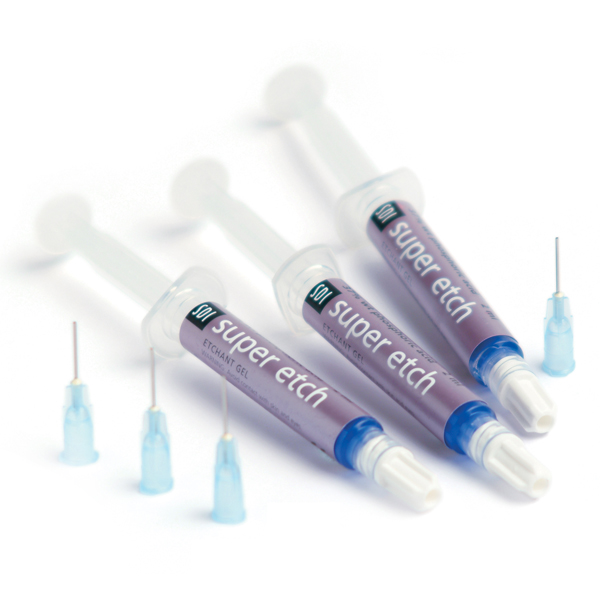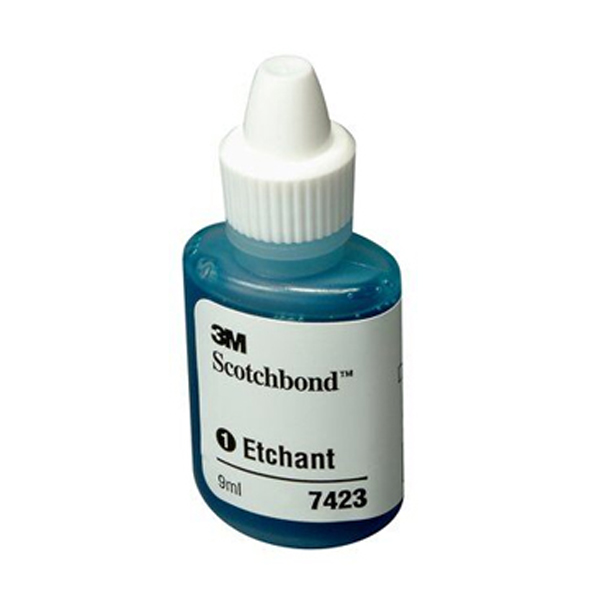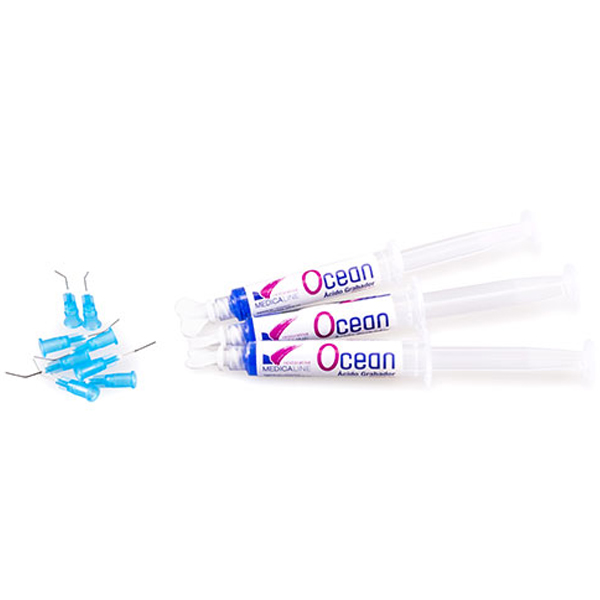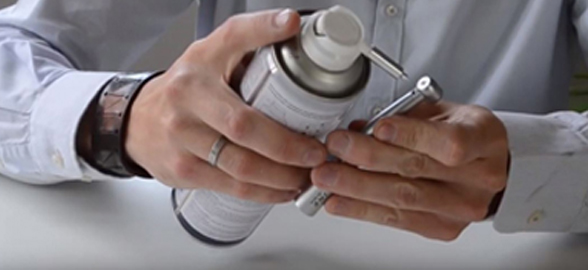Do you want to improve adhesion to restorative materials? Your patients will certainly appreciate it. However, it is essential to select the ideal etching acid for your day-to-day work and that is not an easy task. In addition, one of the most common problems in dental surgery is the different side effects that its use causes on the vitality of the dentin and pulp. Hence the need to know the different types that exist, their differences and what characteristics to look for in order to make the right purchase decision.
For all these reasons, today we bring you a post with everything you need to know about dental etchants in a super complete buying guide. Stay tuned and don't miss a thing! Let's get started!
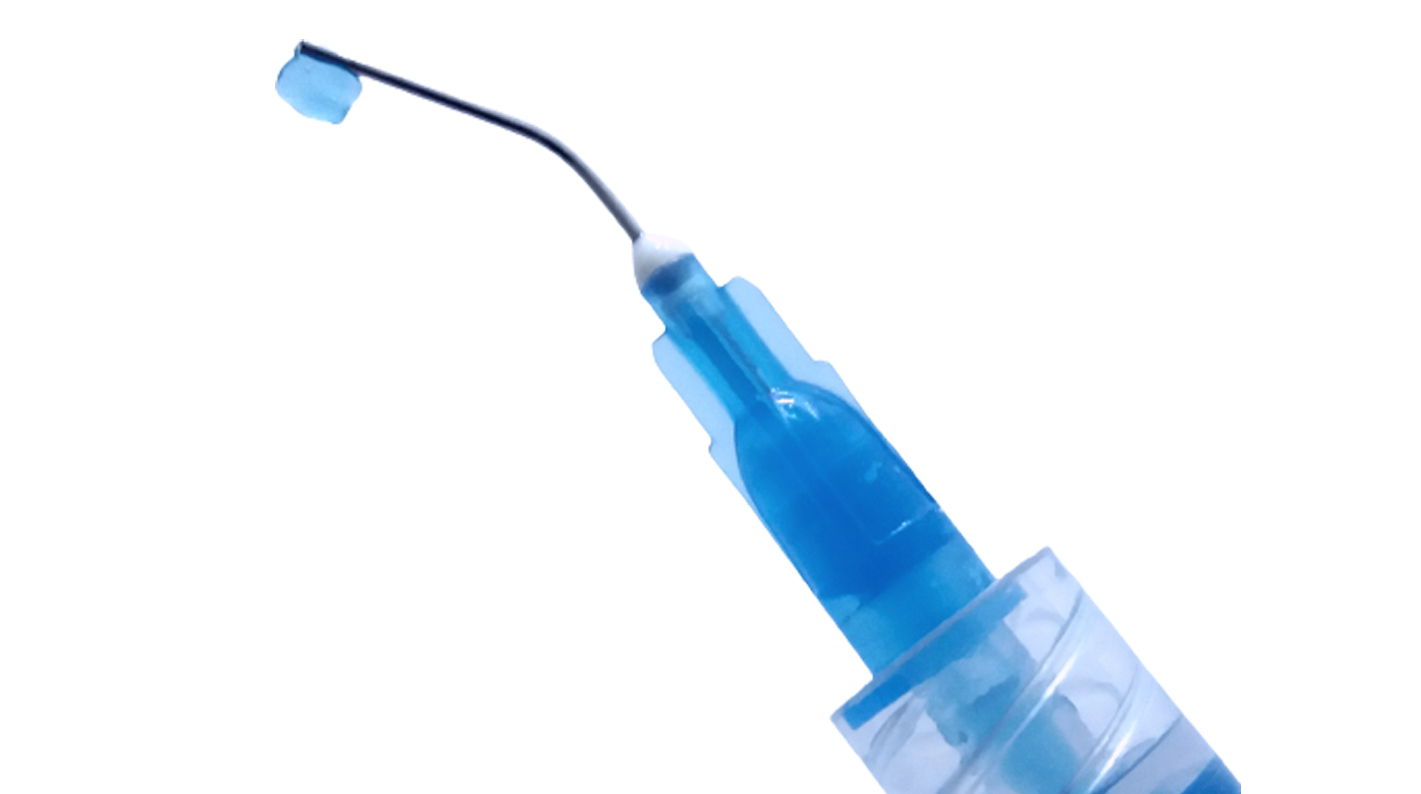
What are etchants and what types are there?
In the early days of adhesive dentistry, one of the biggest challenges was to design restorative materials that would bond firmly to tooth structure. Impediments that seemed impossible to overcome were the presence of moisture, variations in pH and temperature of the oral environment, among others.
Dr. Michael G. Buonocore, who today we know as the father of modern adhesive dentistry, did not have it easy, but thanks to his research, we now know that phosphoric acid is capable of providing a porous surface on the enamel that facilitates adhesion.
On the other hand, we owe the advances and simplification of the total etching technique to Dr. Fusayama. With a lower concentration of acid in dentine, he achieved a wetted surface that prevented the collapse of the collagenous mesh so that, in contact with the hydrophilic priming agent, they form the hybrid layer essential for dentine adhesion.
These researchers provided us with two major milestones that revolutionised dentistry at the time and what we know today as adhesive dentistry.
According to the surface that we want to etch, there are two types of etching acids:
- Phosphoric acid: it is the reference material in the acid etching technique of dentine and enamel, providing an optimal surface for adhesion in both tissues.
- Hydrofluoric acid is used for glass or ceramic etching. It is characterised by improved adhesion and increased mechanical strength.
In addition, there are other types of conditioning acids that are perfect for dentine pretreatment such as polyacrylic acid and no-rinsing etching acids. Most etching acids are generally marketed in gel form, in pre-filled syringes.
Top 3 Dentaltix etching acids
What are the different acid etching techniques?
Once you have decided on the type of acid, it is important to select the etching technique that best suits the treatment you are going to carry out. There are different techniques depending on the procedure and the size of the restoration but also, according to the material the restoration is made of, says Dental Economics magazine. Thus, 3 different basic acid etching techniques can be distinguished:
Total acid etching
The total acid etching technique refers to enamel and dentine etching. In enamel the acid etch pattern creates micromechanical retentions and in dentine, due to its tubular structure and mostly organic composition, the effect is to expose its collagen matrix so that hydrophilic monomers are able to penetrate.
Selective etching
This refers only to the application of forphoric acid to the surface of the superficial cavo enamel rim. Perfect for patients with a tendency to have sensitivity in the deep areas of the tooth.
Self-Adhesive
The universal adhesive includes the etchant, therefore, it should be applied on enamel or dentine not previously etched, always following the manufacturer's recommendations.
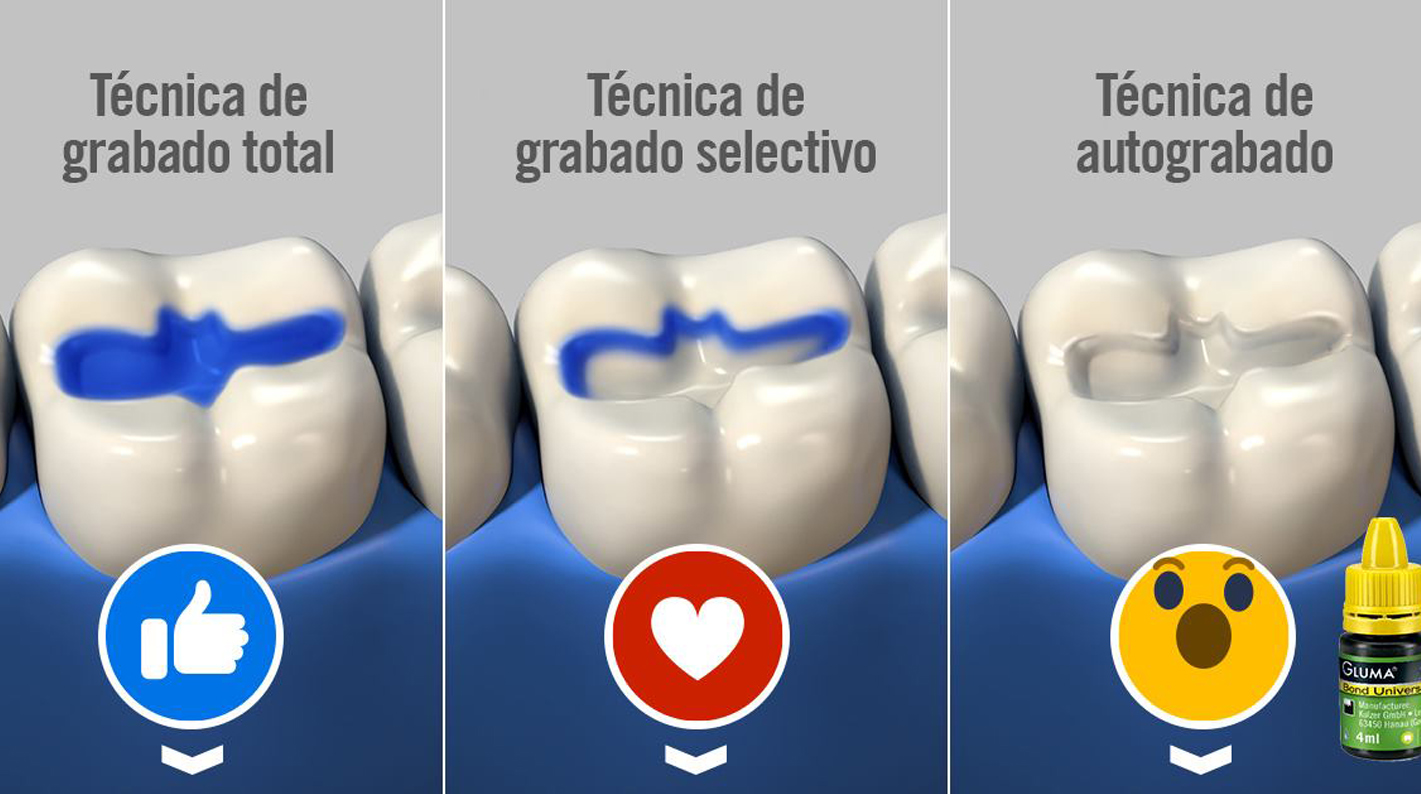
Features for choosing the right acid etchant:
Tired of spending hours and hours trying to find your ideal etchant? We make your choice easier with a series of features that will help you to clarify your ideas:
- Presentation: etching acids are available in syringe or bottle format. Syringes come in various sizes, from the smallest (1.2 ml) to the largest (50 ml). The bottles can also come in different sizes, from 5 ml to 15 ml. They are usually accompanied by application tips and some brands even sell them separately.
- Types of acid: phosphoric or hydrofluoric.
- Indications: phosphoric acid is indicated for enamel and dentine etching and hydrofluoric acid for porcelain etching.
- Concentration: the percentage of concentration varies depending on whether it is phosphoric or hydrofluoric. Phosphoric acid is commercially available in concentrations between 30% and 40%, with 37% being the most common. Hydrofluoric acid is usually used in concentrations of 5% or 10%.
- Viscosity of the solution. The ideal in an etching acid is that it has an appropriate viscosity that facilitates its precise application, but it is also important that it stays where we have left it, therefore, an indispensable characteristic that we must look for in the product we choose is thixotropy. This is the property that allows it to flow when we want to apply it and to become more viscous and not run off the surface of the tooth.
- Liquid /Gel: etching acids can be presented in liquid or gel form. In both cases, they can be in syringe or canister format.
- Colour: green, purple or yellow and many more, the most common is blue. The important thing is that we can easily distinguish it from the tooth and know where it is.
- Application, rinsing and drying time on enamel and dentine: the application, rinsing and drying time on enamel and dentine varies from one manufacturer to another, we recommend that you follow the recommendations of the brand you use to obtain the best results.
Acids with exceptional characteristics:
Still not sure which one to choose? We make it even easier for you. Here are 3 super acids with exceptional characteristics that will leave you open-mouthed:
Ultra Etch Indispense: Etching Acid (35% phosphoric acid)
Ultra Etch has ideal viscosity, which makes precision placement easier and superior control. Although Ultra-Etch is viscous, it can penetrate into the smallest fissures or occlusal surfaces due to its physical and chemical characteristics that promote capillary action. Its ideal viscosity maintains a layer thick enough to prevent premature drying.
Features of Ultra Etch Indispense Etching Gel:
- Exceptional feature: it has self-limiting properties, i.e. the dentine is decalcified to an ideal depth of approximately 1.9 microns, thus generating optimum adhesion.
- Etchant gel based on 35% phosphoric acid, suitable for total etching.
- Penetrates into the smallest cracks and does not slip on a vertical surface.
- Its intense blue colour allows better visibility for the professional.
- It rinses perfectly, as it rinses off easily without leaving residue
- Creates ideal conditions for a strong adhesive bond.
- It has a convenient and economical filling system.
- Available in 1 30 ml syringe or 20 syringes of 1.2 ml.
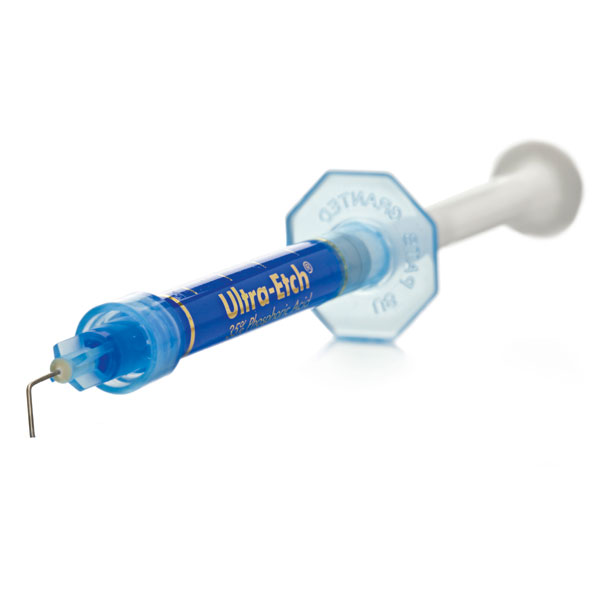
Etchant Gel: Phosphoric Acid Etchant 37% (2 x 2 ml syringes)
Etchant gel for dental etching tixotropic with phosphoric acid at 37% that acts by demineralising the dental enamel and creating micropores that allow the adhesion of the different restorative materials.
It is compatible with all filling materials. Its 2ml syringe format with very fine cannulae facilitates safe and precise dosing.
Features of the VIDU Etching Gel:
- Exceptional feature: 0 plastic footprint certified by The Gravity Wave.
- Weight of plastic used: 10 gr.
- Weight of plastic collected: 10 g.
- Phosphoric acid 37%.
- Thixotropic.
- Suitable for etching enamel and dentine.
- Action time: 15 seconds.
- For young teeth treated with fluoride it is recommended to leave it to act for 90-120 seconds.
- It is compatible with any adhesive system.
- 3 year shelf life.
- Store in a cool, dry place at approx. 22°C.
- Content: 2 syringes of 2 ml each + 6 application cannulas.
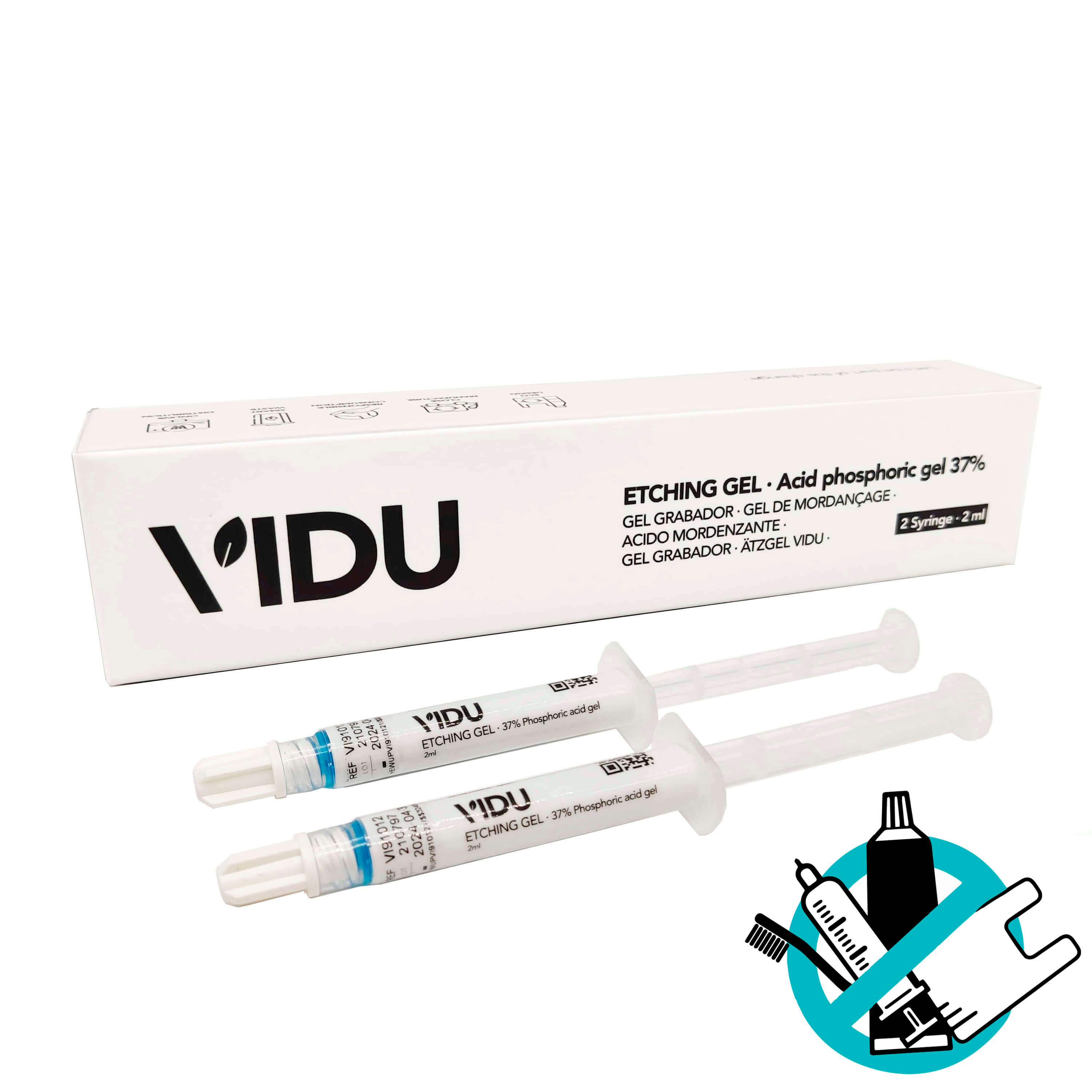
Porcelain Etch & Silane: Porcelain Etching Gel
Porcelain Etch is designed for both intraoral and extraoral porcelain etching. It is recommended for etching porcelain or old macro-filled composites prior to bonding and repair. It is also recommended for indirect restorations in the clinic, such as veneers, inlays, etc. After etching the porcelain, clean the residue and rinse thoroughly. Then apply Silane.
Studies have shown that Silane, in combination with Porcelain Etch, provides higher adhesive strength compared to other porcelain bonding products.
Features of the Porcelain Etch Kit:
- Exceptional feature: Higher bond strength to ceramics than its competitors.
- Porcelain Etch is a gel of concentrated 9% viscous hydrofluoric acid concentrate.
- Easy to control and to apply.
- Does not stain composite or bonding resin.
- Silane is a one-component silane.
- Porcelain Etch and Silane can also be used in lithium disilicate restorations.
- Content: 2 syringes of Pocerlain Etch 1.2 ml + 2 syringes of Silane 1.2 ml + 40 tips.
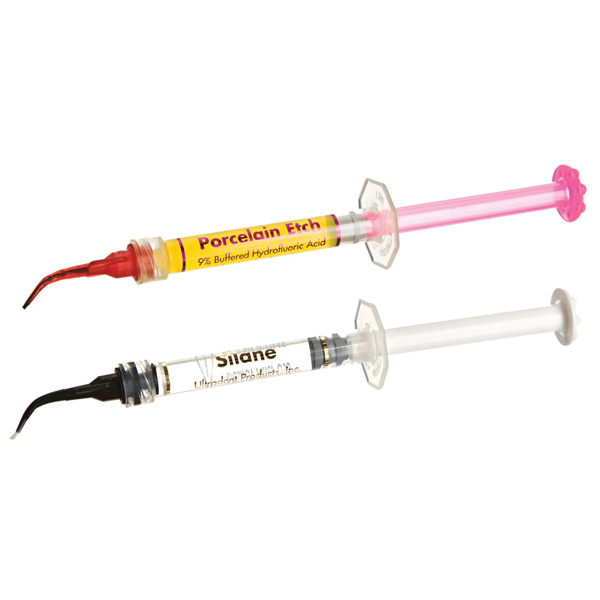
You are now ready to make the right choice for your ideal acid etcher! As you have seen, you need to consider the types that exist and a number of things that will help you make the right decision.
We hope you found it helpful and don't hesitate to write to us if you have any questions, we'll be happy to help! And if you want to keep up to date with the latest in the dental sector, follow us on our social networks!
See you next time!

